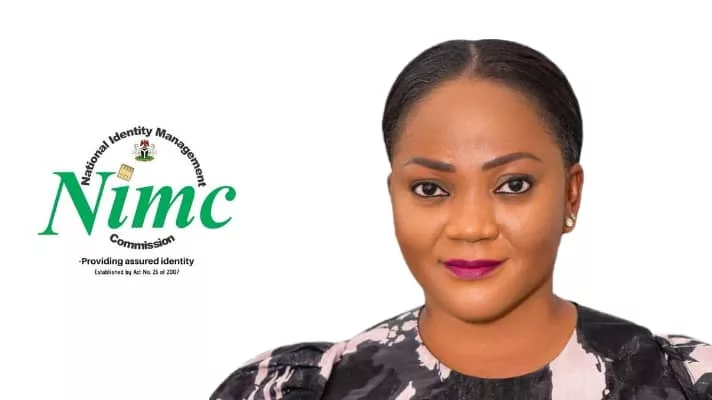The Director-General of the National Identity Management Commission (NIMC), Abisoye Coker-Odusote, has unveiled an ambitious national strategy aimed at registering at least 95% of Nigerians in the National Identity Database by the end of 2025.
Speaking at a media briefing in Abuja, Coker-Odusote emphasized that the initiative is a cornerstone of the Tinubu administration’s Renewed Hope Agenda, which places strong emphasis on digital inclusion, good governance, and citizen empowerment.
“Our mandate is clear,” she stated. “We are working toward a digitally inclusive Nigeria, where every citizen’s identity is recognized, secured, and integrated into national planning.”
To meet this target, NIMC will be ramping up its enrollment efforts through a multi-pronged approach that includes the deployment of enhanced infrastructure, the establishment of additional registration centres across the country, and aggressive public awareness campaigns. According to the DG, special attention will also be given to hard-to-reach and underserved communities to ensure no demographic is left behind.
She further noted that achieving near-universal enrollment is not just a bureaucratic milestone, but a foundational requirement for delivering key government services, enabling financial inclusion, and strengthening national security.
As Nigeria moves toward becoming a data-driven society, the success of this identity drive will be instrumental in building a resilient, transparent, and inclusive digital ecosystem.
Read also: At Least 95 Million Nigerians Yet To Register For NIN – NIMC
“What we have done in this regard is that we will commence the Ward Enrollment Exercise to capture at least 95% of Nigerians before December, year end,” she said.
As of May 2025, NIMC reports over 120 million Nigerians have been enrolled, and about 100 million more would be captured by December. Coker-Odusote noted that the Commission is working assiduously to meet this target.
The NIMC boss asserted that the ongoing Ward Enrollment Exercise when completed will allow the government to know the actual number of Nigerians and this makes it easy to plan effectively for the citizens.
Addressing the issue of public trust, and data security, Coker-Odusote said it is expected that people might have some trust issues, however, the commission has taken several steps to ensure Nigerians can trust that their data is in safe hands.
According to her, one of the things NIMC has done to build trust is to put back the data in the hands of the people, giving them control over their own data with interventions like the NIN Authentication which includes user consent management that enables individuals access their data and choose when and how they would like to share the data for any service required.
She adds that another thing the agency has done is to partner with security agencies who are working tirelessly to be able to address and arrest all those who create fake NIN websites.
Also, there is a partnership between NIMC, and the Nigeria Data Protection Commission (NDPC) to train all staff who will be handling data, especially the enrolment officers.
“We want to make sure that they all get certified by Data Protection, I think its also another way to ensure that internally they get certified and all of our frontend partners and verification partners are also getting certified by the Data Protection Commission; so this is for us to foster trust, to be able to ensure you know that the people handling your data are also certified experts,” she buttressed.
As part of its ambitious drive toward a digitally secure and integrated Nigeria, the Director-General of the National Identity Management Commission (NIMC), Abisoye Coker-Odusote, has announced enhanced cybersecurity protocols and an intensified focus on inter-agency collaboration.
Speaking at a media briefing in Abuja, Coker-Odusote emphasized that safeguarding citizens’ data is paramount, revealing that NIMC has significantly fortified its backend systems to prevent cyber intrusions and unauthorized data access. “We are taking every measure to ensure that the personal information of Nigerians remains protected and out of reach from malicious actors,” she affirmed.
Looking ahead, the NIMC DG said the commission is laying the groundwork for a more integrated public service delivery framework, noting that many Ministries, Departments, and Agencies (MDAs) still operate in silos. “We’ve been actively working on use-case-based integration with MDAs to facilitate seamless information exchange and coordinated governance,” she said.
Coker-Odusote also announced plans to roll out a Public Key Infrastructure (PKI)—a cornerstone of digital trust—which will enable secure electronic document authentication and verification within and across government entities.
She envisioned a near future where MDAs leverage digital signatures and secure data sharing to eliminate paper-based processes, streamline services, and ultimately drive the emergence of a functional e-government ecosystem. This, she emphasized, is essential to sustaining Nigeria’s evolving digital economy and realizing the full promise of President Bola Tinubu’s Renewed Hope Agenda.

